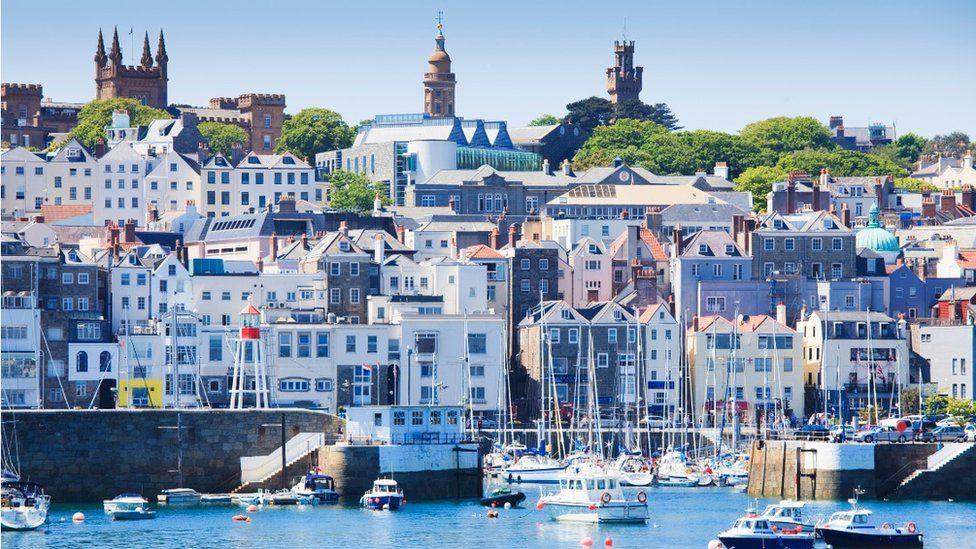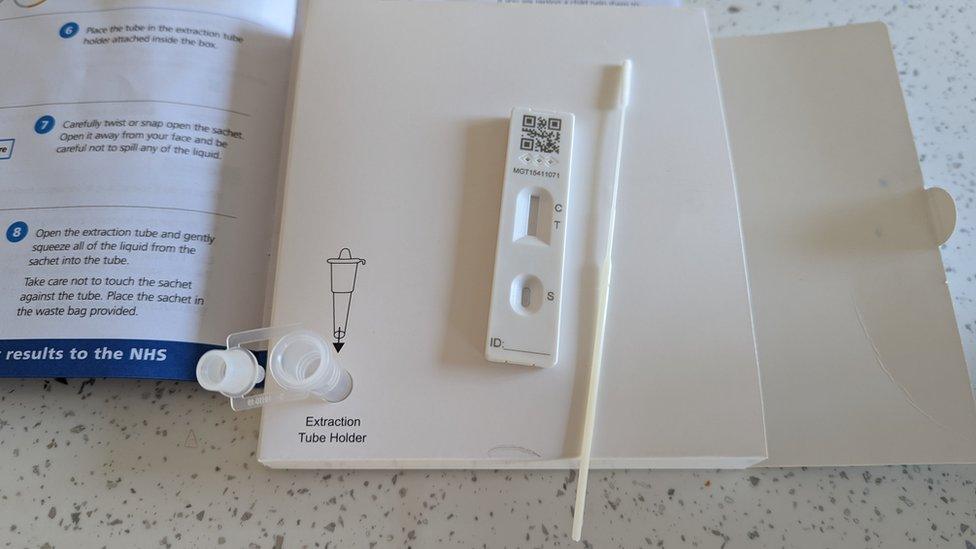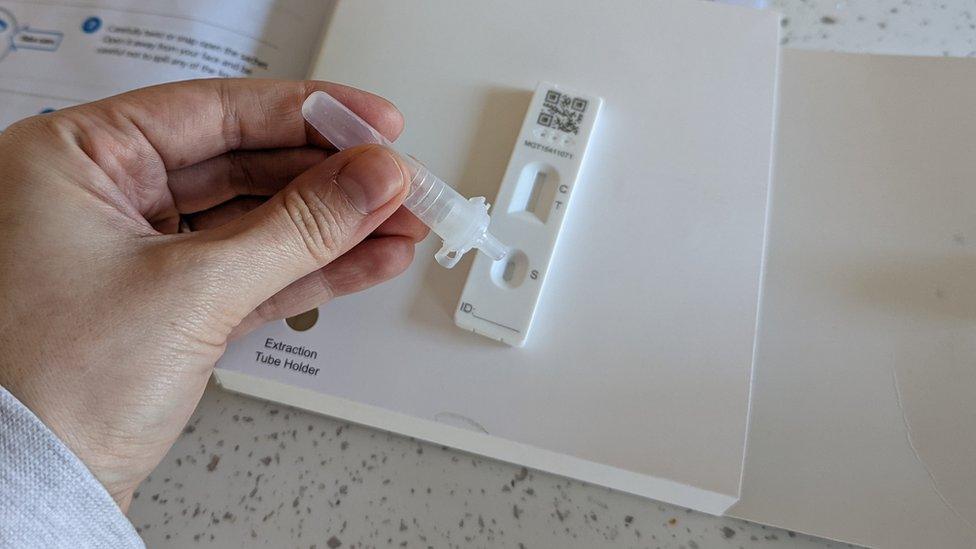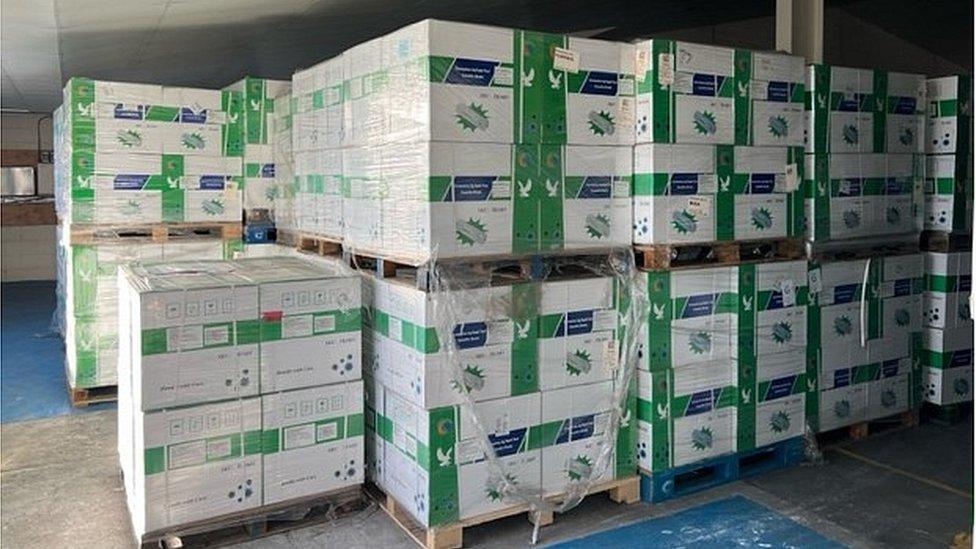Guernsey effective in tackling pandemic says report
- Published

The financial cost of Covid-19 has been calculated by the States as a £97.3m
An internal review of Guernsey States' response to Covid-19, external has found the government was "effective" in dealing with the pandemic.
The Bailiwick of Guernsey was the first of the British Isles to remove Covid-19 restrictions in February 2022.
The financial cost of Covid-19 has been calculated by the States as £97.3m.
The report stated changes in education had resulted in "increased severity of mental health issues such as anxiety".
It also recommends a review to look at different ways the States could deal with emergencies in the future.
In education, results for children in primary schools were down when compared with previous years, with the biggest drop for children in key stage one.
The report blames the "impact of Covid-19 rather than a fall in the quality of education provided by schools".
The picture, according to the report, is different in secondary schools as "reading and writing were not affected since in three out of four schools results were better than in previous years".
One failure identified by the report is the situation around the arrival of British Lions rugby team coach Warren Gatland in Guernsey.
He avoided isolation while there was still a mandatory two weeks isolation period for people arriving locally.
The report states the situation "resulted in concerns in the community about the fairness of this specific case".
"It is accepted that the reasons for the trip to the Bailiwick and the measures put in place to ensure islanders safety and enable the decision-making around the appropriateness of those measures, should have been explained more clearly," says the report.
Between March 2020 and the end of emergency powers in February 2022 there were 90 related investigations for alleged Covid-19 breaches, resulting in 37 convictions and fines totalling £115,500.

Analysis: John Fernandez BBC Guernsey Political Reporter
The "Guernsey Together" mantra did the Bailiwick an enormous service during the pandemic.
This review is not afraid of paying tribute to the public and that mantra, for which the States knows it is indebted to for compliance during this unprecedented period.
Understandably for a review overseen by the States itself, the overall tone is pretty glowing.
But the long-term impact to changes in education are still unknown and remain concerning, with more incidences of mental health issues highlighted.
Politically the call for a review of how the island deals with emergencies in the future will please those politicians uncomfortable with the executive style of the Civil Contingencies Authority.
But whether that review can come up with a new structure with greater accountability, but with the nimbleness praised in this report that served the island well, is yet to be seen.

Deputy Peter Ferbrache, chairman of the Civil Contingencies Authority, which managed Guernsey's response to the pandemic, said there were "lessons to be learned" from the response to the pandemic.
"Lives were saved as a result of the response we took as a community, which we should be proud of," he said.
"But we should also remember those we were not able to save, who lost their lives to the virus which was so devastating around the world."
Deputy Rob Prow, president of the Home Affairs Committee, said the Covid response "brought out the best of the Bailiwick."
"It is important to learn lessons from such a significant period in recent history and I welcome this review which will help us to do that," he said.
"It has improved our understanding of the potential impacts of major emergencies, especially in the rare case where they are prolonged in the way the pandemic was, and that can only help us with our response if and when it is needed in the future."

Follow BBC Guernsey on Twitter, external and Facebook, external. Send your story ideas to channel.islands@bbc.co.uk, external.
Related topics
- Published20 March 2023

- Published14 October 2022

- Published23 December 2022
